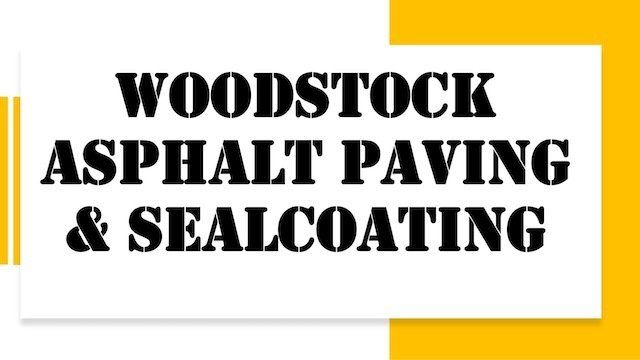Permeable Pavers: Are They Right for Your Driveway or Patio?
When designing or upgrading a driveway or patio, the materials you choose play a significant role in functionality, durability, and aesthetics. One increasingly popular and eco-friendly option is permeable pavers. But what exactly are they, and are they the right choice for your outdoor space?
This blog will explore what permeable pavers are, how they work, and their advantages and disadvantages. By the end, you'll have the information you need to decide whether permeable pavers are the perfect choice for your home.
What Are Permeable Pavers?
Permeable pavers are specially designed materials for driveways, patios, or walkways that allow water to filter through them and into the underlying ground rather than pooling or running off. Unlike conventional concrete or asphalt surfaces, which are impervious and often lead to stormwater runoff, permeable pavers provide a sustainable solution to water management.
These pavers come in a variety of materials, including concrete, brick, or stone, and they are typically installed with small gaps or voids between them. Beneath the surface, a multilayered structure made of crushed stone or gravel facilitates water infiltration, filtration, and drainage.
Why Choose Permeable Pavers?
Before jumping into their advantages and disadvantages, let's look at why people are switching to permeable pavers and the problems they aim to solve:
- Stormwater Management: Conventional surfaces contribute to runoff, which can overload stormwater systems and cause flooding. Permeable pavers provide a solution by helping water naturally infiltrate into the soil.
- Eco-Friendliness: By reducing runoff, they minimize the risk of soil erosion and water pollution caused by carrying pollutants to streams and lakes.
- Modern Aesthetic Appeal: Permeable pavers offer a wide range of design options, adding a unique and polished look to your driveway or patio.
But are they the right fit for your needs? Let's dig deeper into their features and functionality.
The Benefits of Permeable Pavers
1. Better Drainage and Flood Prevention
One of the standout benefits of permeable pavers is their ability to manage water effectively. During heavy rainfall, water easily flows through the gaps between the pavers and is absorbed into the ground. This not only prevents standing water but also helps reduce the risk of flooding in nearby areas.
For homeowners living in regions prone to heavy rains, permeable pavers can be a game-changer.
2. Eco-Friendly Solution
Permeable pavers contribute to a greener environment. By allowing water to filter back into the soil, they help recharge local groundwater supplies and reduce the heat-island effect caused by hard, impervious surfaces.
Additionally, many permeable paver options use recycled or sustainable materials, which further reduces their environmental impact.
3. Minimized Soil Erosion
Runoff from traditional driveways and patios can lead to soil erosion over time. Permeable pavers direct water into the ground rather than letting it wash over nearby soil, protecting your landscaping or garden from damage.
4. Durable and Long-lasting
Permeable pavers are strong enough to withstand heavy loads, making them ideal for driveways. Their modular nature also means they can be individually replaced if one gets damaged, saving you from having to redo the entire surface.
5. Aesthetic Versatility
Available in various shapes, colors, and patterns, permeable pavers can enhance the look of your outdoor spaces. Whether you prefer a modern minimalist design or a more rustic look, there’s a permeable paver style to suit your taste.
6. No More Puddles
Because water drains immediately into the ground, permeable pavers eliminate ugly puddles on your driveway or patio. This is particularly useful in snowy regions, where ice buildup can make surfaces slippery.
Potential Drawbacks of Permeable Pavers
While permeable pavers have numerous advantages, they do come with some downsides that you should consider before making a decision.
1. Higher Initial Cost
Permeable pavers tend to be more expensive than traditional pavement options. Not only are the materials often pricier, but the installation requires a specific technique and additional layers for filtration and drainage.
However, consider them an investment. Over time, the cost savings from reduced stormwater management issues and lower maintenance needs may offset the higher upfront price.
2. Regular Maintenance Needed
To maintain their permeability, the gaps and spaces between the pavers need to stay clear of debris like dirt, leaves, or sand that can clog them. Periodic cleaning (such as power washing or vacuuming) is necessary, particularly in areas with frequent storms or heavy tree cover.
3. Limited Effectiveness in Certain Climates
Permeable pavers are highly effective in regions with moderate rainfall and well-draining soil. However, in areas with clay-heavy soil or persistent freezing and thawing cycles, their efficiency may decrease.
4. Not Suitable for Steep Slopes
If your driveway or patio area is on a steep incline, permeable pavers may not be the best option as water can bypass them, reducing their effectiveness.
5. Installation Complexity
Because of their layered structure (including a compacted base, gravel layers, and the pavers themselves), installing permeable pavers requires expertise. Hiring a professional is often necessary, which adds to the overall cost.
How to Decide if Permeable Pavers Are Right for You
Here are a few questions to ask yourself when determining if permeable pavers are suitable for your driveway or patio:
- Do you live in a region with abundant rainfall and need efficient stormwater management?
- Are you willing to invest in the upfront cost of installation for long-term environmental and financial benefits?
- Can you commit to regular maintenance to keep the pavers functioning effectively?
- Is your surface area relatively flat, with soil that drains well?
If you answered "yes" to most of these questions, chances are permeable pavers are a good fit for your outdoor project.
Key Considerations When Installing Permeable Pavers
If you decide to go ahead with permeable pavers, here are some crucial factors to keep in mind:
- Hire a Professional Installer: The success of permeable pavers heavily depends on proper installation. Make sure to choose experienced professionals who understand the unique techniques required.
- Choose the Right Materials: Not all permeable pavers are created equal. Work with your installer to identify the materials and designs best suited to your functional needs and aesthetic preferences.
- Plan for Maintenance: Establish a routine to clear debris and inspect the system regularly to prevent clogs and ensure optimal performance.
Rethink Outdoor Spaces with Permeable Pavers
Whether you’re building a driveway, walkway, or patio, permeable pavers offer a sustainable and stylish solution. Not only do they look great, but they also solve water drainage challenges, minimize environmental impact, and boost the durability of your outdoor space.
While they may require a higher upfront investment, the long-term benefits for both homeowners and the environment are hard to ignore. If you're looking for a solution that merges efficiency, sustainability, and design, permeable pavers might just be the perfect fit for you.
We proudly serve the following cities: Acworth, Alpharetta, Atlanta, Austell, Brookhaven, Canton, Cartersville, Dallas, Decatur, Doraville, Douglasville, Duluth, Dunwoody, East Cobb, Hiram, Johns Creek, Kennesaw, Lilburn, Mableton, Marietta, Milton, Powder Springs, Roswell, Sandy Springs, Stone Mountain, Suwanee, Tucker, Villa Rica, and Woodstock Ga.
Woodstock Asphalt Paving & Sealcoating
Woodstock Ga 30188
404-724-8034


